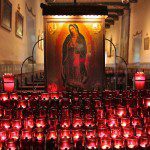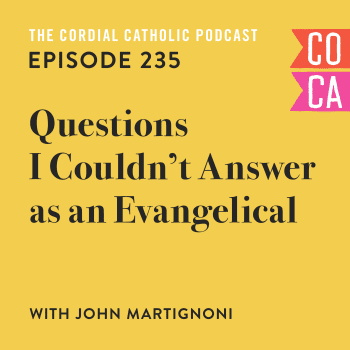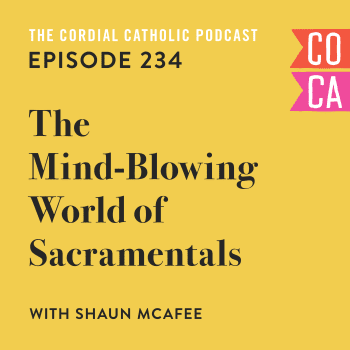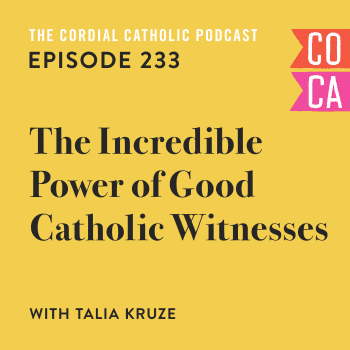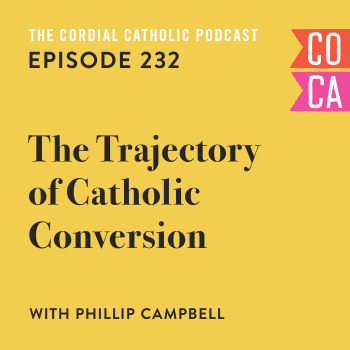
The truth is a trap.
I’ve recently devoured G.K. Chesterton’s The Catholic Church and Conversion. I wrote, recently, that even though I’m well on my way towards becoming Catholic his treatise on conversion seriously reframed and expanded my own understanding of my journey. It’s important, I think, to understand the narrative that you’re in—it’s brilliant when it’s so poignantly put, and that’s what Chesterton does.
Chesterton writes about the process of conversion being a three-step journey.
In the first step, a Protestant is exploring the Catholic Church. In his words, the Protestant is “being fair” to the Catholic Church. I wrote about this elsewhere. Chesterton says that this “being fair” leads to the second step, which is exploring the claims of the Catholic Church. Here Chesterton resonates, too. The final step of the journey to conversion, however, is different from the first two. Suddenly, says Chesterton, but also quite gradually, the truth begins to pursue you.
The truth, Chesterton says, is a trap but it is a trap, for the convert, that we set for ourselves.
There are times when I don’t feel very cordial, and this is one of them. Because, of course, Chesterton uses the term “truth” to mean the “fullness of truth” that is, as him and I understand it, found in the Catholic Church. This begins to tread lightly on delicate territory because the last thing I want to do is tell you, my friends and readers, that you don’t have the full truth in the expression of your faith. At the same time, that is the unabashed claim of the Catholic Church: To be the Church that Christ founded, the most full expression of the Christian faith.
It comes down, I guess, to a conversation I had with a close friend. At some point you need to draw a line and say, “This is the truth, as far as I believe it.” Drawing that line, by the very nature of the act, will make some people, other people, feel excluded.
I don’t think there’s necessarily a way around that (I’m not up for relativism).
At any rate, it isn’t too important for my point, or for Chesterton’s, that we argue about what the truth is. I don’t want to offend, so I explain.
The point is, like Chesterton, I’ve come to a place in my journey, a strange and foreign place, where the truth has begun its earnest and haphazard pursuit of me.
I can’t explain it any other way.
My friends that know me, least of all my beautiful wife, know that I’ve had an interest in Catholicism for a while. Readers of this blog, who’ve been around the past few months, or who’ve perused the archives, have learned about this too. Catholicism didn’t just fall out of the sky and knock me on the head (although that could explain a few things). I’ve been interested in Catholics for a while.
My interest turned to something more serious when I began to read about Catholicism from the perspective of Catholics themselves. My interest piqued. As I’ve written here time and again, when I began to learn about what Catholicism actually taught, not just what I thought it was all about, I found a whole new perspective. I found, like G.K. Chesterton, a beautiful, rich, vibrant faith tradition. I found something, as I’ve written elsewhere, that was historically, intellectually, and spiritually fulfilling. Something I hadn’t fully found anywhere else.
But then what I’d found turned on me. The trap sprung.
It’s a trap, Chesterton writes, that isn’t set by the pope or the priest but a trap set by ourselves. A trap that we’ve willing walked into.
And now it pursues me.
It’s a bit like going mad.
Over these last few months, I’ve been drawn up into Catholicism in ways I cannot even begin to describe. The Mass, the Liturgies, the Divine Office, Eucharistic Adoration—the prayer life of the Church. I can’t read enough fast enough. I can’t listen to enough podcasts or watch enough lectures on YouTube. And, as my long suffering wife and close friends can probably attest, I live for the opportunity to talk about this stuff.
Perhaps it’s the newness of the thing, there’s certainly some of that mixed in there, but beyond that, and in the face of some pretty crappy experiences with Catholicism so far, I’m drawn up nonetheless. It’s been pretty hard to explain apart from saying that I am now the one being pursued. The truth is after me.
There comes a point when it kind of defies logic because not everyone who reads Catholic authors and not everyone who reads my foaming-at-the-mouth descriptions of the sacraments are jumping on the papist bandwagon. Why not? If Catholicism is as compelling to everyone else as it is to me, well then we should all be Catholics. But that’s not how it works. The trap has sprung on me and my leg’s is the leg that’s half in it. That’s been difficult to learn sometimes.
Still, I wouldn’t have quite believed it if it hadn’t happened this way to me. A like another common thread that Chesterton points out in many Catholic conversion stories this one, too, is found in most. That at some point those that are seeking find. That, like me, many begin the journey interested and end up being hotly pursued. It’s an incredible and inexplicable leap to go from looking into something to being overwhelmed by it, being consumed by it, finding it blissfully inescapable.
Of course, writes Chesterton, the most difficult part is the very last bit and it’s odd to think that, in this situation, the truth is a very scary thing. The last part, Chesterton says, is giving in to the pursuit.


